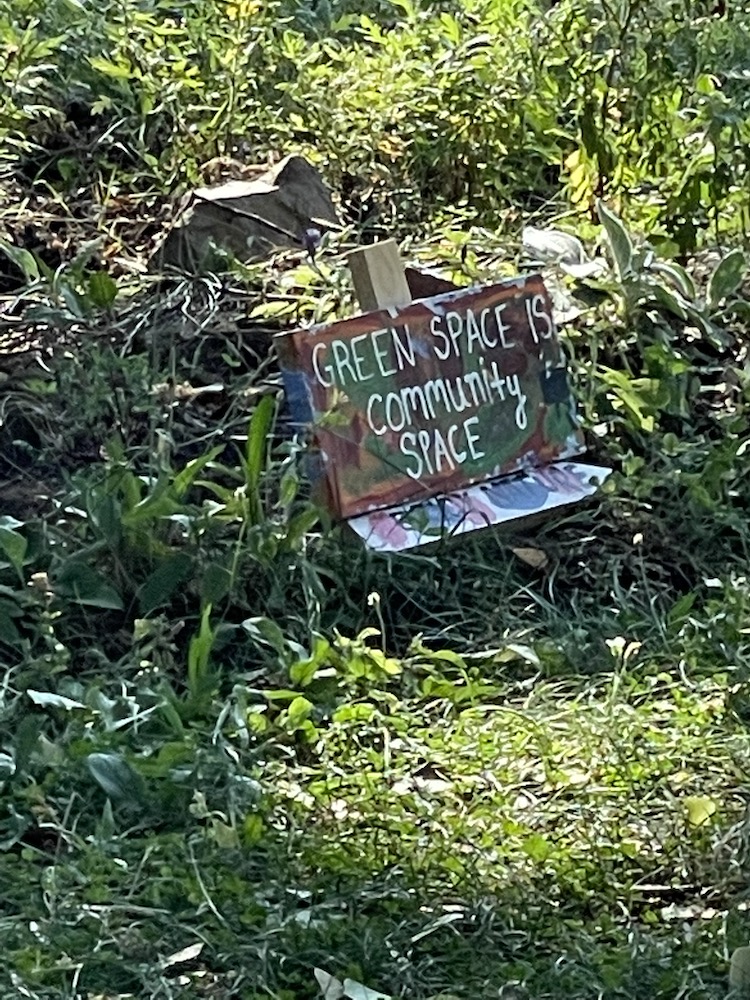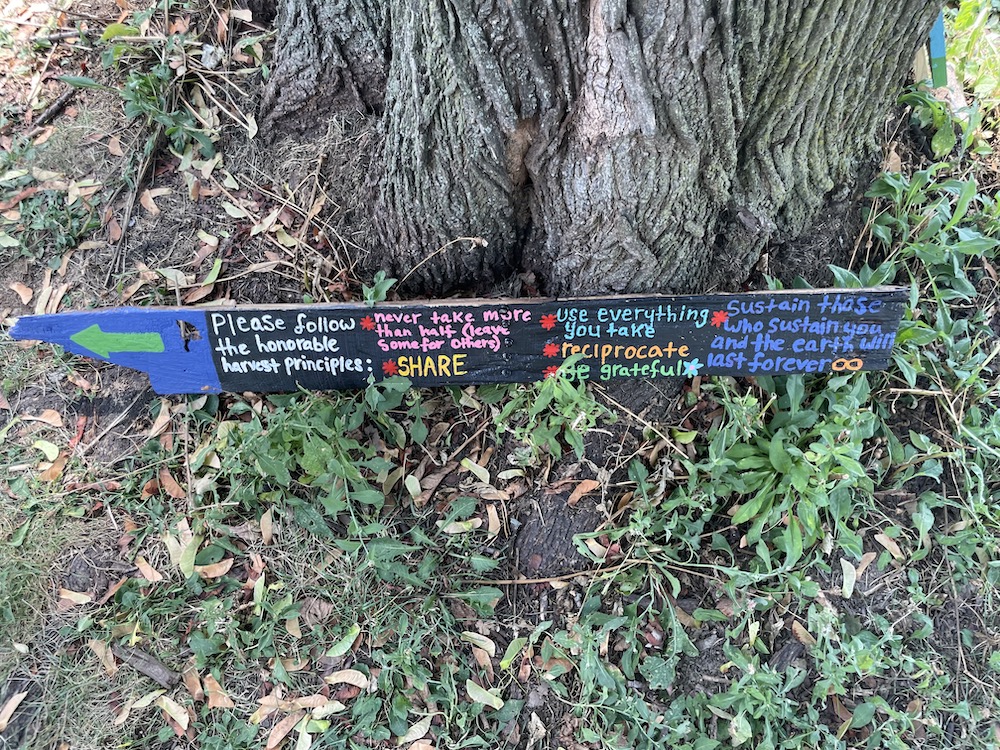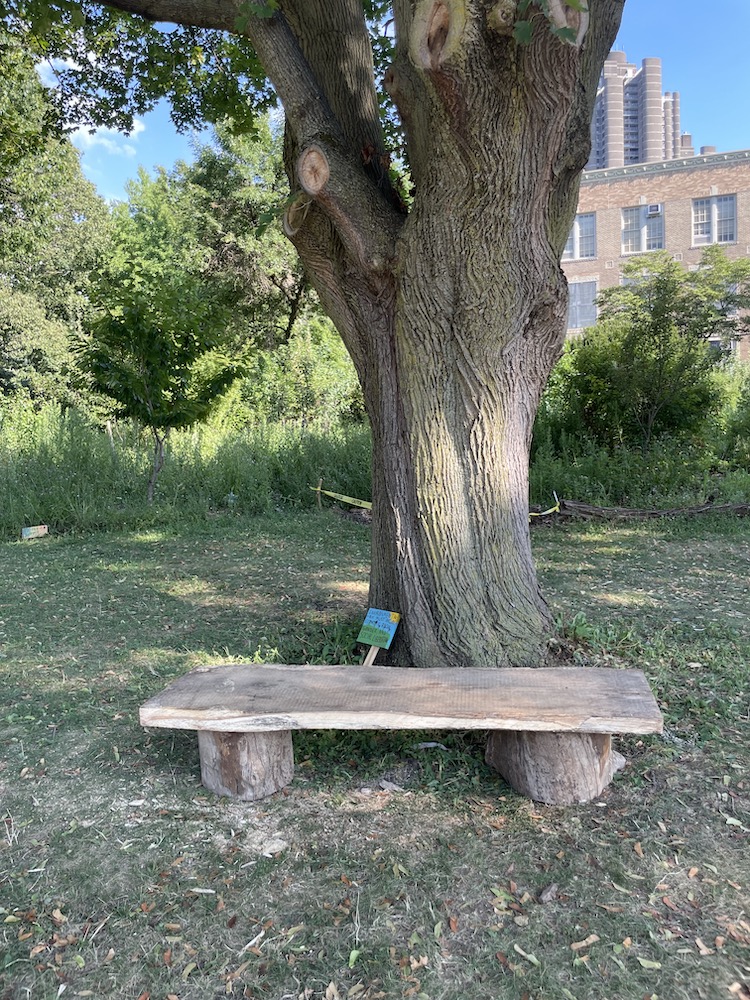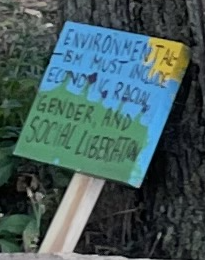EEAC Newsblog, JBOLC Series
JBOLC: James Baldwin Outdoor Learning Center
At this crucial stage of our environmental crisis in an age of mass extinction there is a fundamental need for human self-awareness and the formation of communities with voices who share in this basic belief: nature deserves our love and respect, not least because we depend for our survival upon it. There is a great need for experiential learning that demonstrates the way that gardens and nature itself works. The questions around destructive utilization of land, whether the land is public or private, looms large for our civilization right now on a global scale, and a hyperlocal one. Use of land in ways that destroy nature happens all around us on many scales and levels including right outside our doors in our immediate local surroundings. At the local level, open spaces might consist of suburban neighborhood lawns or urban public-school property. We know they can be managed in ways that benefit all life forms, but how do we convince the private owners or public authorities? At what point and how do we act further if our initial entreaties fail?
 When scaled to global proportions and considering the scorched earth policies of presidents, kings, dictators, authoritarians, totalitarians and corporations throughout history and who presently still hold power, this is a radical, revolutionary, and certainly courageous question. To challenge an authority that abuses land they consider their own can be a dangerous move, the source of global conflict, including war. On the local level, the question remains the same, how do we protect property that is not ours and get someone to stop acts of destruction upon it? At what point in our earth’s decline do we, as an enlightened society, decide to step up and defend nature, give the earth its due or at least not act upon it in ways that decrease not only human but nature’s (as we knew it) ability to survive here?
When scaled to global proportions and considering the scorched earth policies of presidents, kings, dictators, authoritarians, totalitarians and corporations throughout history and who presently still hold power, this is a radical, revolutionary, and certainly courageous question. To challenge an authority that abuses land they consider their own can be a dangerous move, the source of global conflict, including war. On the local level, the question remains the same, how do we protect property that is not ours and get someone to stop acts of destruction upon it? At what point in our earth’s decline do we, as an enlightened society, decide to step up and defend nature, give the earth its due or at least not act upon it in ways that decrease not only human but nature’s (as we knew it) ability to survive here?
 My approach to this question focuses on actions that could be taken in the local sphere. How might we stand up to local public authorities and private owners who act upon their properties with little regard to honoring even basic patterns of nature? I am willing to share my own recent experiences trying to maintain garden spaces on DOE (NYC Dept of Education) property in the Bronx. I confess, it is an ongoing struggle, the battle is not over – so these reports are more or less “live” and “from the ground.” I am grateful to be involved in this struggle and hope that our work might serve as testimony to the idea that struggle truly exists and we surely need some ideas and discussion around it.
My approach to this question focuses on actions that could be taken in the local sphere. How might we stand up to local public authorities and private owners who act upon their properties with little regard to honoring even basic patterns of nature? I am willing to share my own recent experiences trying to maintain garden spaces on DOE (NYC Dept of Education) property in the Bronx. I confess, it is an ongoing struggle, the battle is not over – so these reports are more or less “live” and “from the ground.” I am grateful to be involved in this struggle and hope that our work might serve as testimony to the idea that struggle truly exists and we surely need some ideas and discussion around it.
Responding or initiating with insight, asking questions, suggesting ideas – and sharing your own experiences is totally in line with what I will be providing in a series of occasional posts. I’m hoping to create a community forum in this space by inviting your voices to help convey the perspective of nature, the pollinators, the plants, the ecosystems that support biodiversity and life from your own little corner of the world. I believe many of us are feeling the urgency to address the crisis happening in our lifetime and before our eyes. I hope this can become a safe and respected public space to gather and discuss ways to confront authorities who have little ecological awareness yet determine the use of land. What challenges have you experienced defending nature on public/private lands? Please share your story in the comment section below.
This is the first of the JBOLC (James Baldwin Outdoor Learning Center) series of the EEAC Newsblog.


